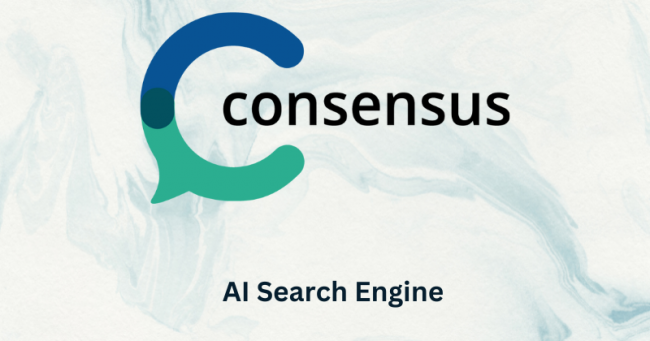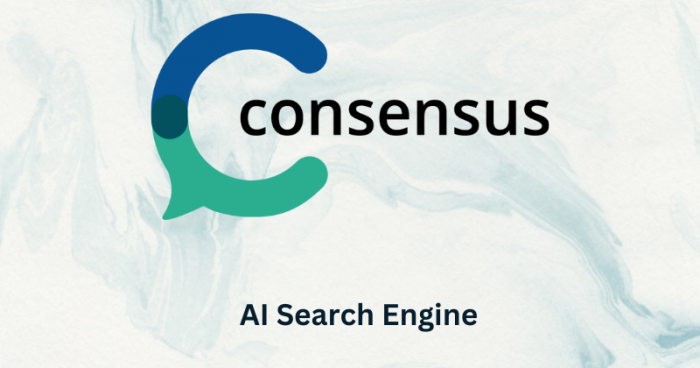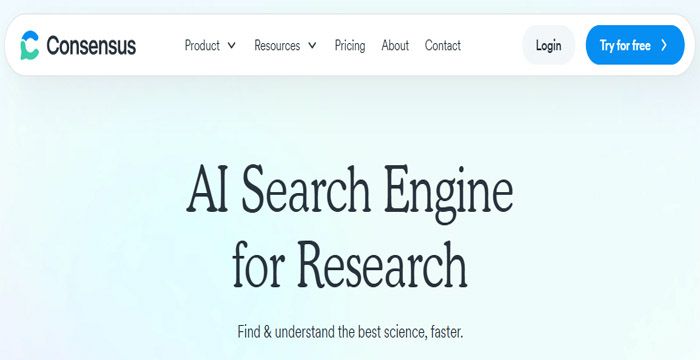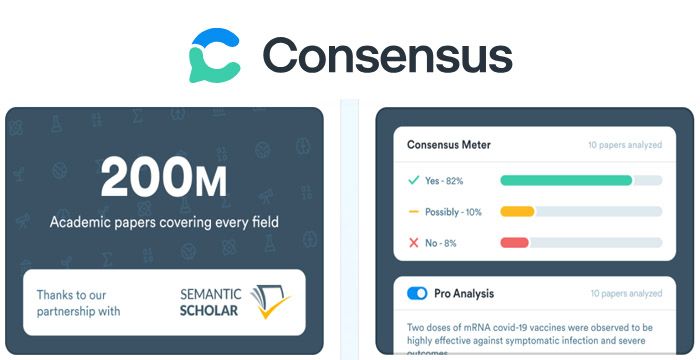Software
4 min read
Consensus AI: A Tool for Evidence-Based Research Search


Consensus AI is a web-based platform designed to help users find and understand answers to scientific questions by summarizing peer-reviewed research. Unlike general-purpose AI models or web search engines, it focuses strictly on academic literature and excludes other content such as blogs, news articles, and personal opinions.

This article outlines its function, how it works, and how it compares to large language models like ChatGPT.
Consensus AI is a scientific research search engine powered by natural language processing. Its goal is to make it easier for users to access evidence-based summaries of research findings, particularly in fields like medicine, psychology, health science, and education.
Instead of listing web pages, it pulls information from academic databases and summarizes what published studies say about a given question.
Consensus AI relies on a dataset of over 200 million peer-reviewed papers (via sources like Semantic Scholar). When a user enters a question, the system:
It does not write its own opinions or make assumptions. It only reflects what the research shows.
One core feature is the Consensus Meter, which displays the level of agreement among the studies it finds. For any scientific question, the meter may indicate:
This allows users to quickly assess whether a scientific consensus exists on the topic.
Consensus GPT is a conversational interface built into the platform. Unlike ChatGPT, it only pulls from peer-reviewed studies and does not rely on general internet content.
Its responses:
This makes it more suitable for research-related tasks, but not for creative, general-purpose, or open-ended questions.
Consensus offers a range of pricing plans to suit individuals, teams, and large organizations. Each plan is designed to provide flexibility based on usage and needs. Below are the details for each tier:

1. Free Plan
For those just getting started with Consensus
Ideal for: Beginners who want to explore the platform and its core features.
2. Premium Plan
For users who need unlimited access and advanced features

3. Teams Plan
For small teams and research organizations
4. Enterprise Plan
For universities and large organizations
| Aspect | Consensus AI | ChatGPT |
| Purpose | Research summarization | General-purpose assistant |
| Source of Information | Peer-reviewed academic journals | Web pages, books, articles, forums |
| Output Style | Factual summary with citations | Conversational, variable in accuracy |
| Use Cases | Research, medical, academic, and evidence validation | Creative writing, general Q&A, productivity |
| Reliability for Scientific Questions | High citations shown | Varies, may include false claims or hallucinations |
Consensus is more appropriate for academic or fact-based work. ChatGPT is broader in scope but less reliable for source verification.

Consensus is suited for:
It is not designed for opinion-based, entertainment, or open-ended topics outside scientific literature.
Developer Access and API Integration
Consensus also offers an API for developers to integrate research-based answers into third-party systems or tools. This is used in platforms where validated scientific content is required in real-time.

Consensus AI is a narrow-scope, research-focused tool that extracts and summarizes findings from peer-reviewed scientific literature. It is designed for users who need reliable, evidence-based information, especially in academic, health, and technical fields.
Unlike ChatGPT or web search engines, it does not provide general answers or engage in broad conversation. It focuses only on what published science currently supports or refutes.
Be the first to post comment!